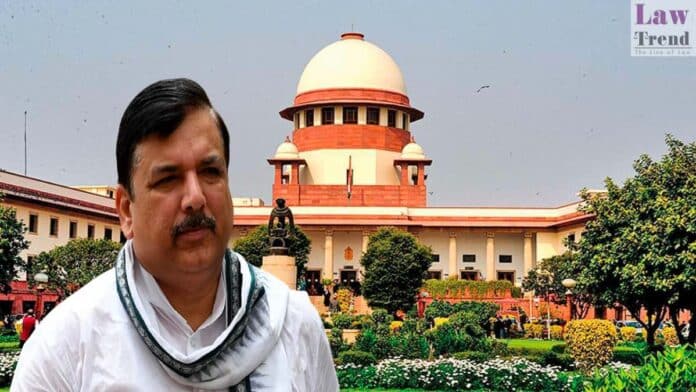The Supreme Court on Monday declined to entertain Aam Aadmi Party (AAP) parliamentarian Sanjay Singh’s plea challenging the Uttar Pradesh government’s decision to shut down 105 primary schools, directing him instead to approach the Allahabad High Court.
A bench of Justices Dipankar Datta and A.G. Masih observed that Singh’s challenge pertained to the enforcement of statutory rights under the Right of Children to Free and Compulsory Education Act, 2009 (RTE Act), and therefore should be raised under Article 226 of the Constitution before the jurisdictional high court, rather than invoking the Supreme Court’s powers directly under Article 32.
Bench Questions Maintainability
During the hearing, senior advocate Kapil Sibal, representing Singh, argued that the closures had deprived poor children of access to schools. The bench, however, noted:
“Are you not trying to enforce rights under the Right to Education Act? You cannot camouflage this as an Article 32 petition. It is a local problem confined to Uttar Pradesh. Let the high court deal with it.”
Sibal pointed out that the Allahabad High Court had already dismissed a similar petition. To this, Additional Solicitor General K.M. Nataraj, appearing for the state, informed the court that an intra-court appeal against that dismissal was still pending before the high court.
Reiterating its stance, the bench said: “If it is a statutory right, then it cannot be camouflaged as a writ petition under Article 32. There is a three-judge bench decision on this.”
Withdrawal of Plea
Following the exchange, Sibal sought permission to withdraw the petition, with liberty to move the high court afresh. He also urged that the high court be requested to hear the matter expeditiously, given that the issue concerned the education of thousands of children. The Supreme Court allowed the withdrawal, granting Singh the liberty to approach the Allahabad High Court.
Singh’s Challenge to School Closure
The petition, filed through advocate Sriram Parakkat, assailed the Uttar Pradesh government’s June 16 order directing that primary schools with zero or low enrolment be “paired” with nearby schools. A subsequent list issued on June 24 by the Basic Shiksha Adhikari, Lucknow, identified 105 schools for pairing, effectively merging them with other institutions and rendering them non-operational.
Singh argued that this forced children—mostly from marginalised communities—to travel longer distances, often without adequate transport facilities, infrastructure, or prior notice. He claimed the closures violated their fundamental right to free and compulsory education under Article 21A of the Constitution, as implemented through the RTE Act and the Uttar Pradesh RTE Rules, 2011.
State’s Defence
The Uttar Pradesh government has defended its policy as part of restructuring under the National Education Policy (NEP) 2020. It maintained that sustaining schools with negligible student strength was administratively and financially unviable.




